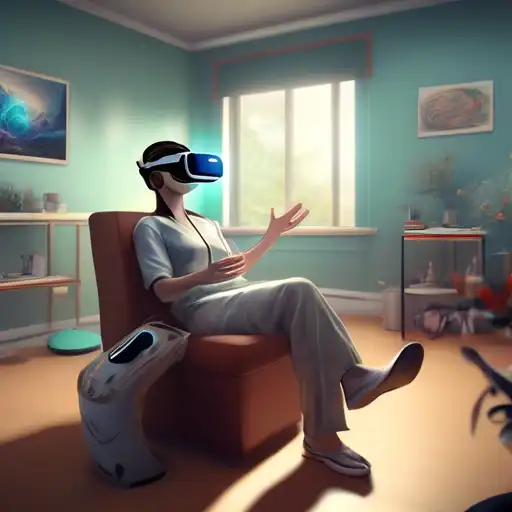The Transformative Power of Virtual Reality in Therapeutic Practices
Virtual Reality (VR) technology has transcended its initial entertainment purposes, paving the way for groundbreaking applications in therapy. This immersive technology is now being leveraged to treat a variety of psychological and physical conditions, offering patients a safe and controlled environment to confront their challenges. From anxiety disorders to physical rehabilitation, VR is revolutionizing the therapeutic landscape.
VR in Mental Health Therapy
One of the most significant applications of VR in therapy is in the field of mental health. Therapists are using VR to simulate environments that help patients face their fears in a controlled setting. For instance, individuals with phobias can gradually expose themselves to their fears without the real-world risks. Similarly, VR is being used to treat PTSD by allowing patients to process traumatic memories in a safe space.
Physical Rehabilitation Through VR
Beyond mental health, VR is making strides in physical rehabilitation. Patients recovering from strokes or injuries can engage in virtual exercises that are both engaging and therapeutic. These VR programs are designed to improve motor skills and coordination, making the rehabilitation process more effective and enjoyable.
The Benefits of VR in Therapy
The advantages of using VR in therapy are manifold. It provides a safe environment for exposure therapy, offers customizable scenarios tailored to individual needs, and enhances patient engagement. Moreover, VR therapy can be more cost-effective in the long run, reducing the need for physical resources and enabling remote therapy sessions.
Challenges and Future Directions
Despite its potential, VR therapy faces challenges such as high initial costs and the need for further research to validate its efficacy across different conditions. However, as technology advances and becomes more accessible, VR is poised to become an integral part of therapeutic practices worldwide.
For more insights into how technology is transforming healthcare, explore our articles on Innovation in Healthcare and The Future of Therapy.
In conclusion, VR is not just changing the way we play and learn; it's revolutionizing how we heal. By offering immersive, customizable, and safe therapeutic environments, VR is opening new horizons in both mental and physical health treatment. As we continue to explore its potential, the future of therapy looks increasingly virtual.
